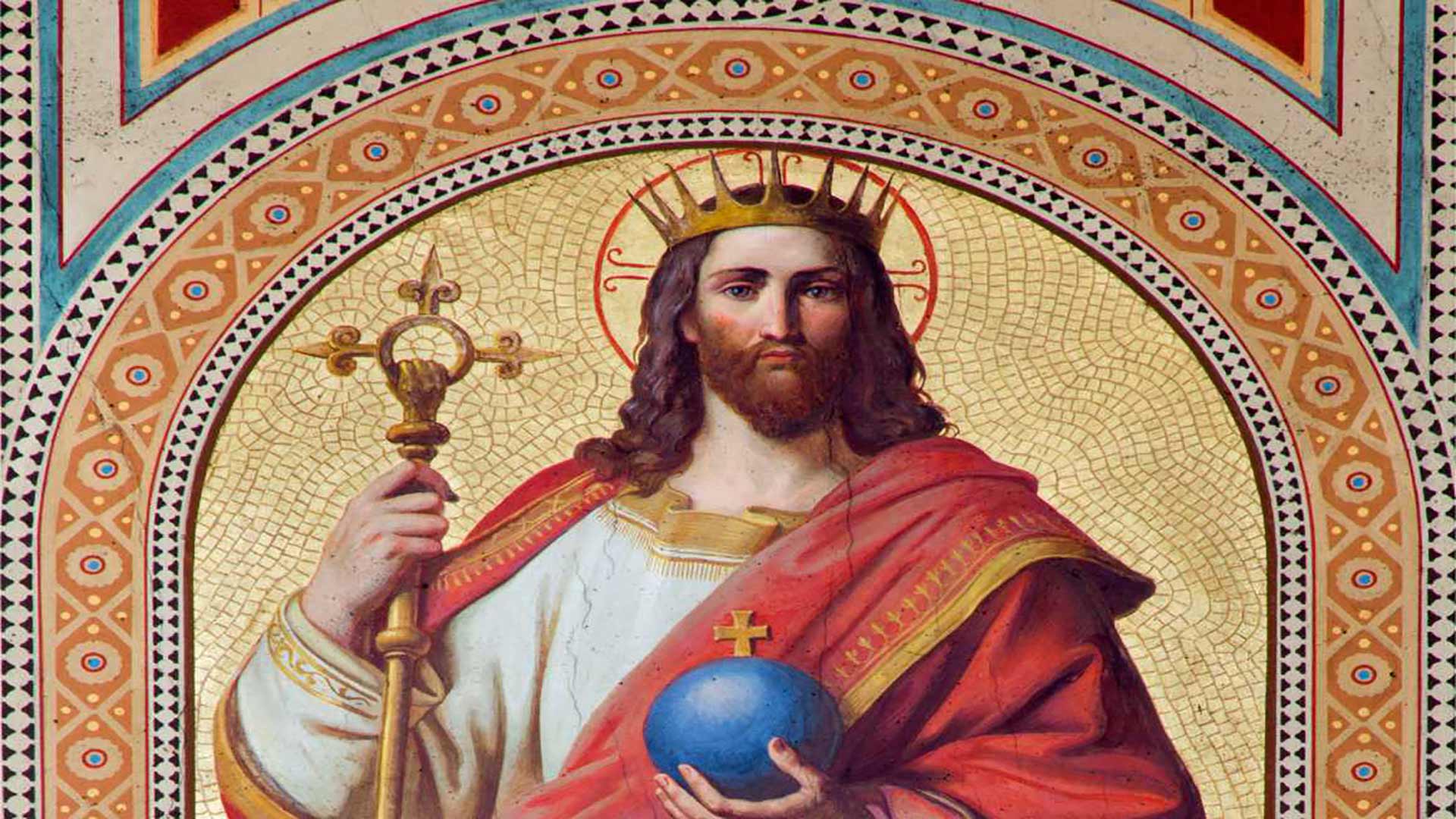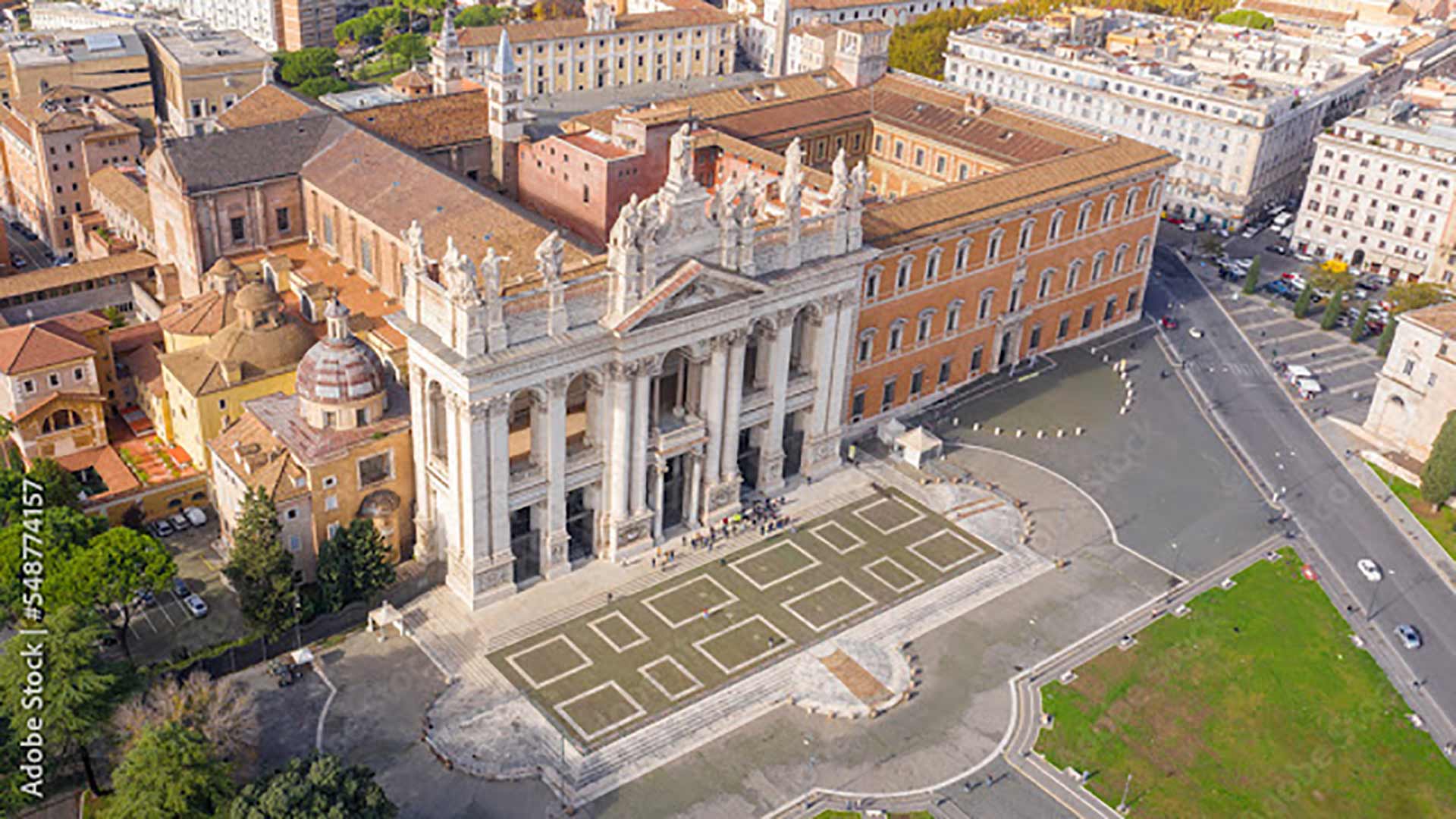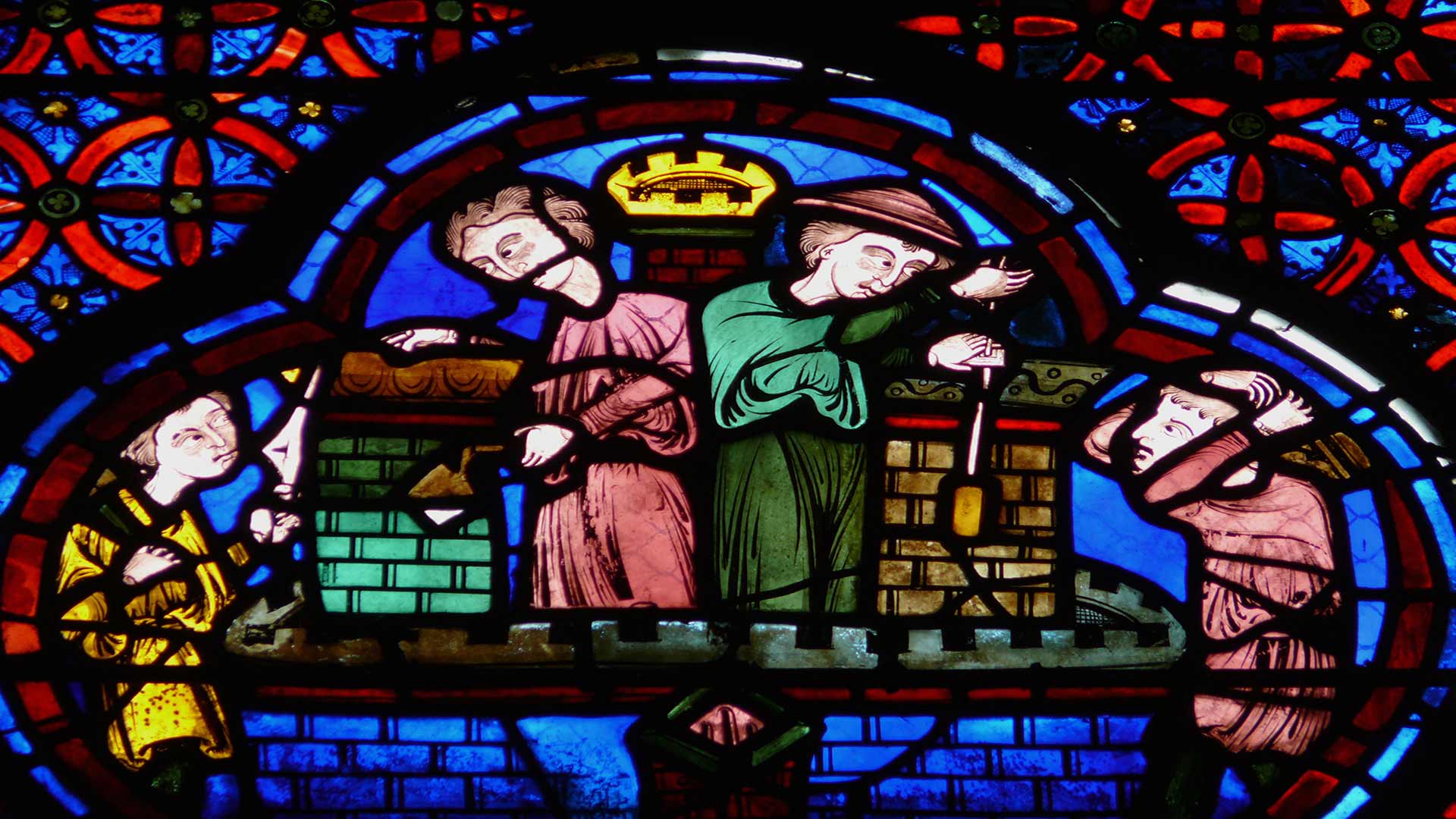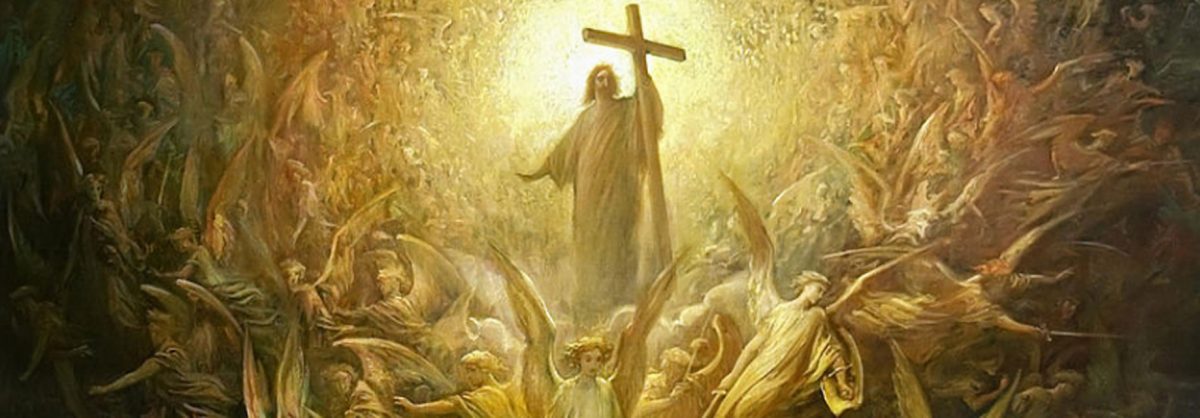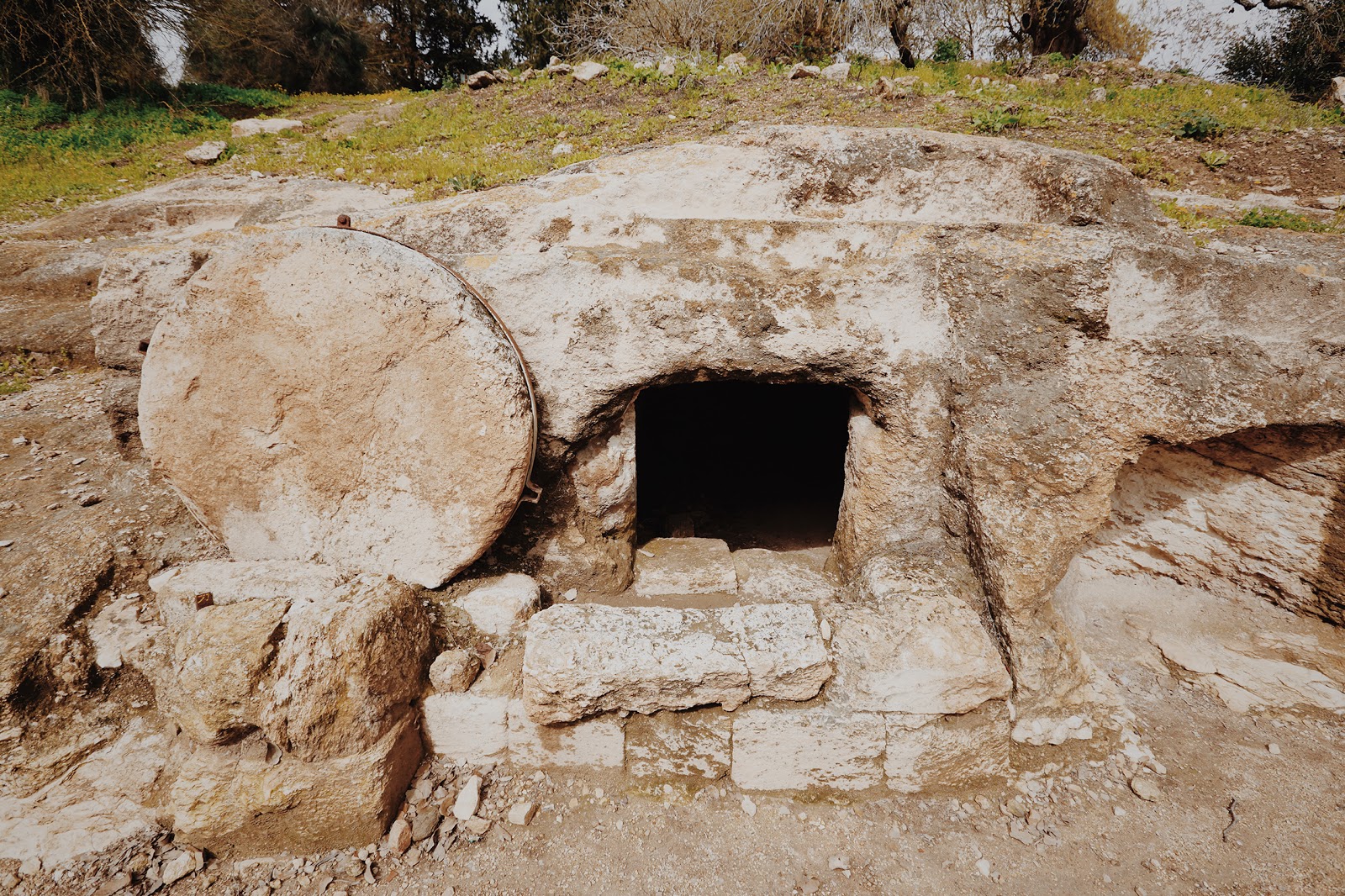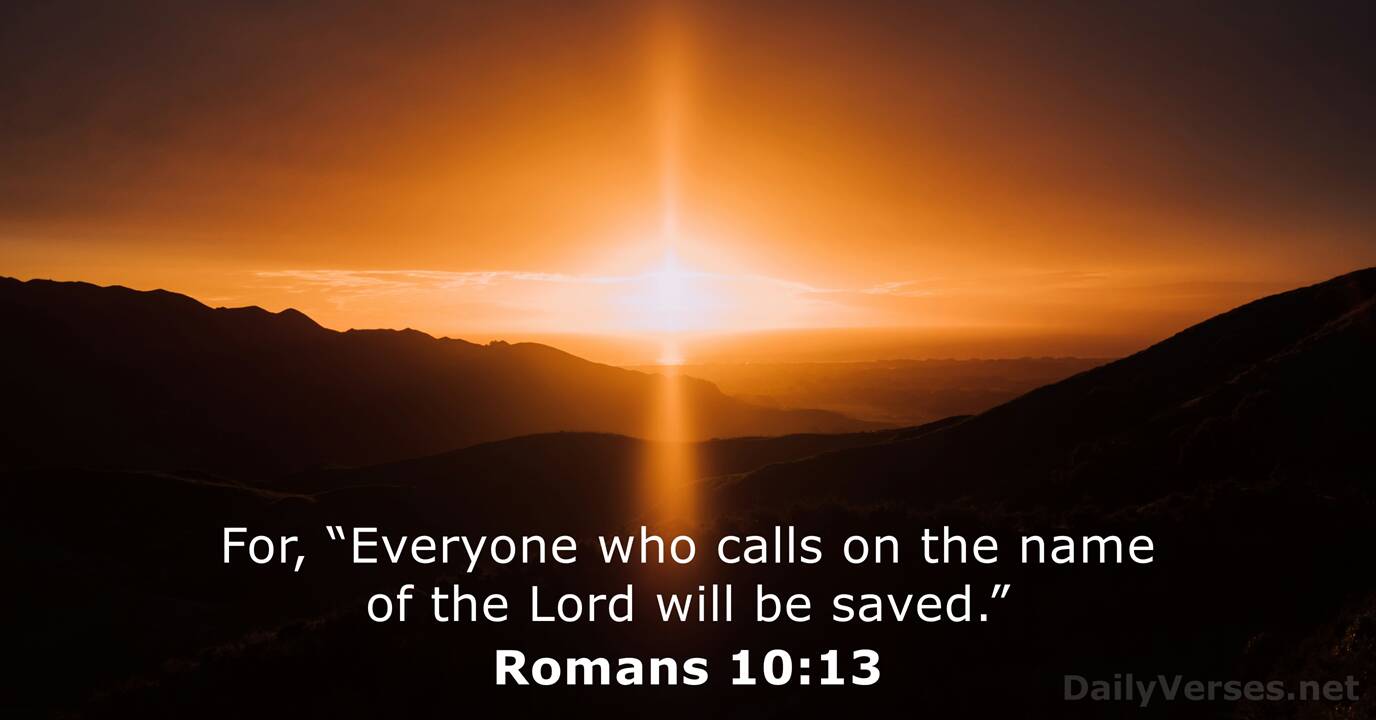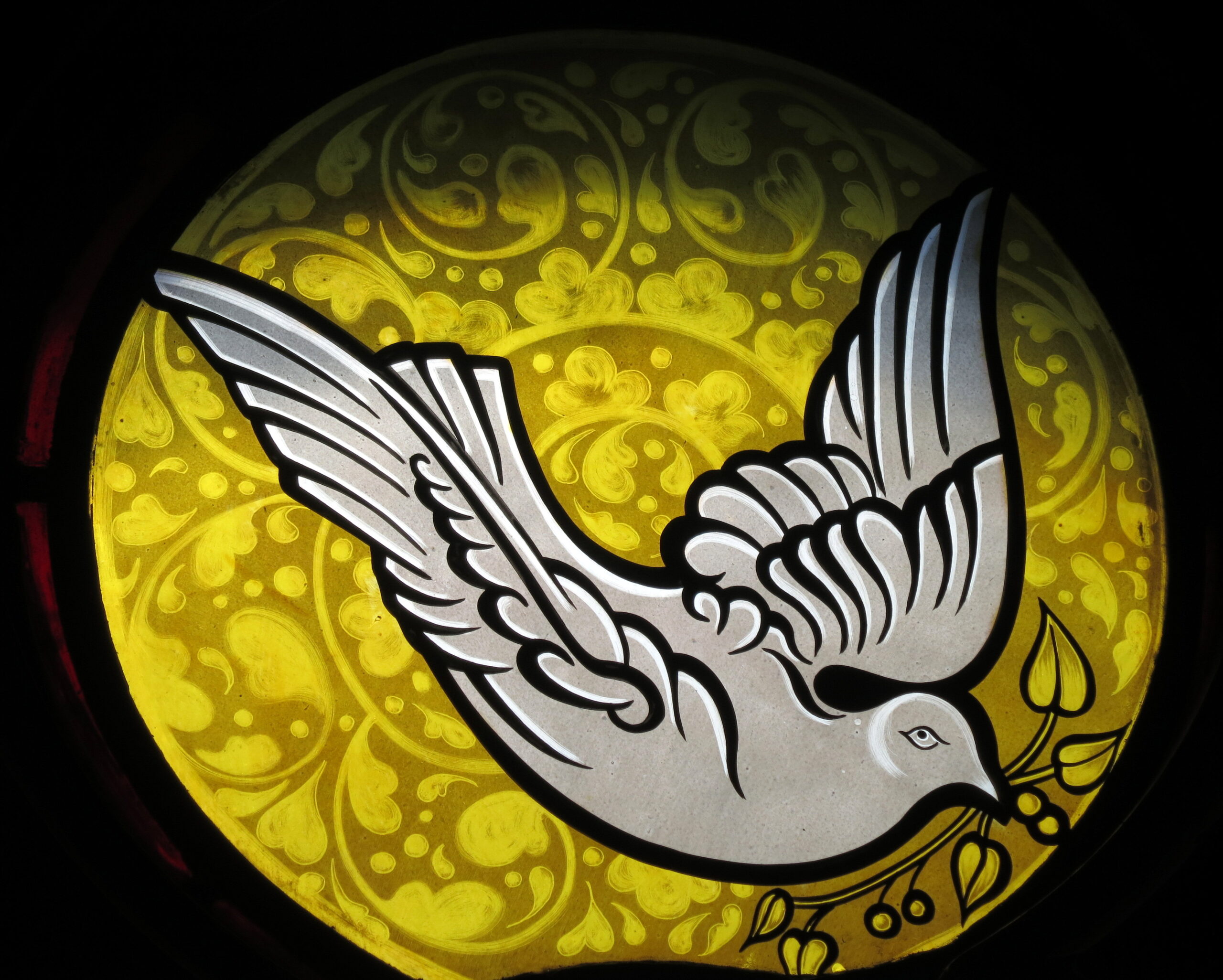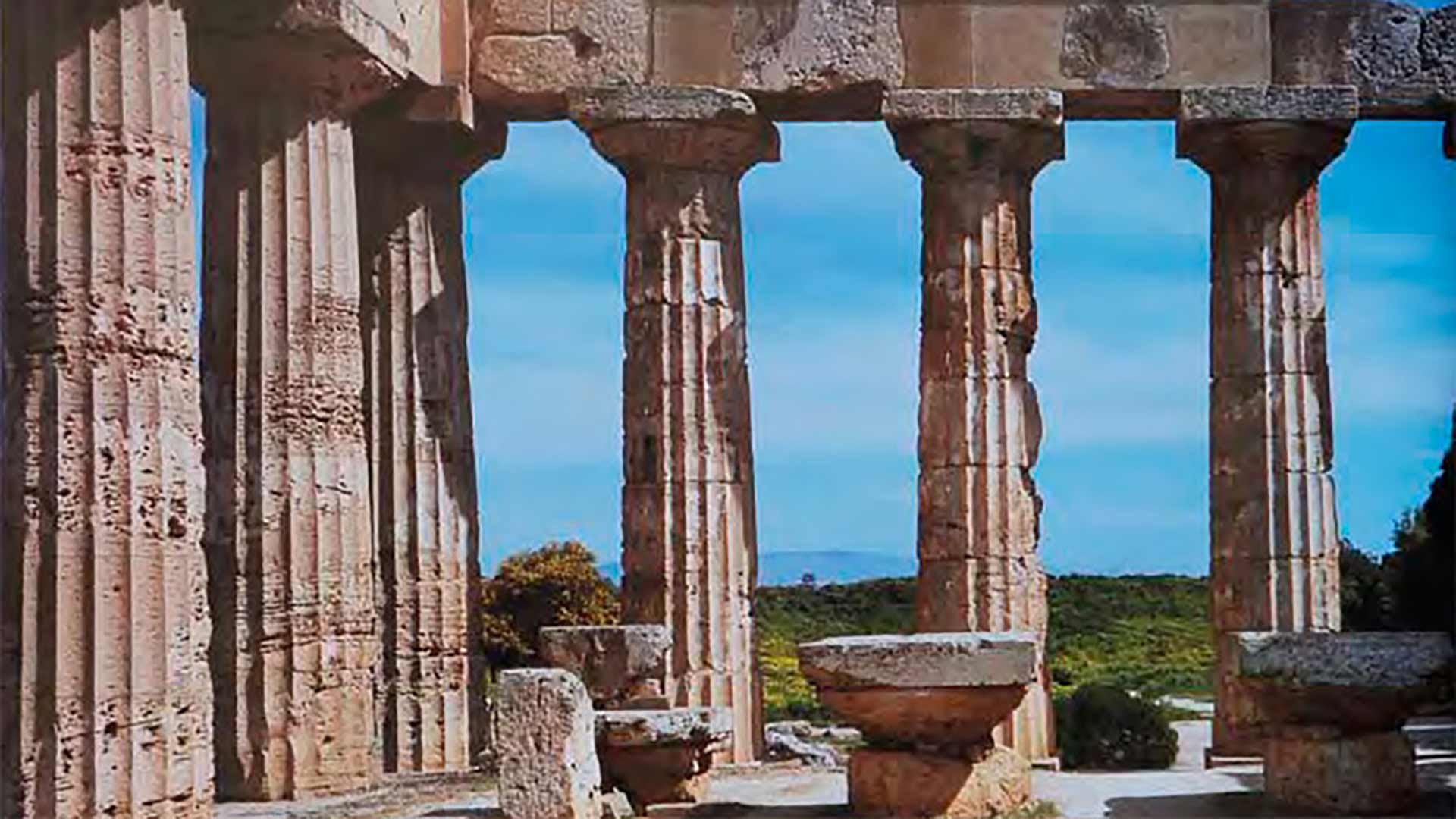‘Christ is King’: do we really mean it?
The last Sunday of the liturgical year is dedicated to Christ the King. Even if He is not acknowledged in the secular world today, we can be sure that He will be sooner or later. Meanwhile, within the Church, it is for us to proclaim Him from the rooftops. But do we do it?
Sad to say, nowadays, even in the highest echelons of the ecclesiastical hierarchy, many bend over backwards to please the world. As if to justify such an approach, they say that we must move with the world. To them, G. K. Chesterton has fittingly said, ‘We do not want a Church that will move with the world. We want a church that will move the world.’ This is a self-respectful, dignified, spirited, and inspiring position.
In the First Reading (2 Sam 5: 1-3), we see how the tribes of Israel pleaded with David to lead them as their king. Saul, the first king of Israel, had left the kingdom in a shambles. After his death in battle, the kingdom split between his successor, Ish-bosheth, and David. After a civil war, David defeated Ish-bosheth and unified the northern kingdom of Israel with the southern kingdom of Judah, establishing a new united monarchy.
David instructed his successor, Solomon, to follow God’s law at all times and be sure of success. Despite his reign beginning with prosperity, wisdom, and major construction projects such as the First Temple, Solomon’s later years were marked by excessive taxation and the introduction of idolatry through his many foreign wives. This led to unrest and the eventual division of the kingdom after his death.
Idolatry is a nuisance of our times as well. Do you remember the glorification of Pachamama (a goddess of Earth and fertility from Andean cultures, primarily Peru, Bolivia, Ecuador, and northern Argentina) during the Amazon Synod at the Vatican? Catholics around the world were indignant not only to see the pagan statues present in various ceremonies but also to see the then Pope bless one of them. He was also present when the statue was carried into the synod hall at the beginning of the Synod, accompanied again with pagan rituals.[1] While top prelates looked on, thankfully, three cardinals and three bishops separately voiced opposition to paganism in the church ceremonies.[2]
The Gospel (Lk 23: 35-43) reminds us that when Our Lord was on the Cross, the people stood watching, and the rulers derided Him, saying: ‘He saved others; let him save himself, if he be Christ, the elect of God.’ When we bow to other gods and seek their favour, not only are we complicit in idolatry, it is a clear sign that we do not believe that Christ alone can save us. The soldiers also mocked Him, and one of the robbers blasphemed Him, as some of us do today. In such situations, we would do well to say to the perpetrators of the crime, ‘Neither dost thou fear God...?'
However, it takes faith to say those words, and faith to believe! Perhaps we would ask God for pardon at the hour of our death, as the robber did by saying ‘Lord, remember me when thou shalt come into thy kingdom.’ But then, will we have the time or the occasion to repent? Therefore, it is better to give up wrongful ways while it is still time. Let us take courage and call them out, no matter who or what. We shall have done our duty, and when our time comes, Jesus will say to us, as He said to the repentant robber: ‘Amen I say to thee, this day thou shalt be with me in Paradise.’
In this matter, no one could be more seasoned than St. Paul. In the Second Reading (Col 1: 12-20), he who weathered many storms tells us of Christ’s supremacy: all things in heaven and on earth were created through Him and for Him. God the Father has made us worthy to be partakers of the company of the saints in light. He has delivered us from the power of darkness and has translated us into the kingdom of the Son of His love, who is the image of the invisible God, the firstborn of every creature.
Do we still dare not acknowledge Him as King? Are we going to exchange eternal salvation for petty trinkets here on earth? Those who have the responsibility to lead the faithful will have to give an account of themselves, and so will the faithful, who can tell the difference between true and false, right and wrong, and good and bad. So, let us hasten not only to proclaim but also show through our actions that Christ is King.
Banner: https://www.usccb.org/Christ-the-King-2024-novena
[1] https://www.corrispondenzaromana.it/international-news/six-cardinals-and-bishops-who-condemned-pagan-pachamama-rituals-at-vatican/
[2] Cardinal Raymond Leo Burke from USA; Cardinal Robert Sarah from Guinea; Cardinal Gerhard Müller, former Prefect of the Congregation for the Doctrine of the Faith; Bishop Joseph Strickland of USA; Bishop Athanasius Schneider of Kazakhstan, and Bishop Peter Chukwu of Nigeria.
Consecrating the living temple
Just like the Feast of All Saints that fell on the 31st Sunday in Ordinary Time had readings proper to that particular observance, the Feast of the Dedication of the Lateran Basilica in Rome, which falls today, the 32nd Sunday in Ordinary Time, has a unique set of readings, not part of the regular cycle for Ordinary Time.
What, then, is special about 9 November? On this day in the year 324 A.D., the Archbasilica of Saint John Lateran in Rome was consecrated as the official cathedral of the Pope, the Bishop of Rome. The first major basilica built in the Roman Empire was granted the status of ‘Mother and Head of All Churches in the City and of the World’ (omnium urbis et orbis ecclesiarum mater et caput).
In 1724, Pope Benedict XIII ordered the worldwide observance of the date. He looked at the basilica as a symbol of unity and strength between the Catholics and the Holy See. The feast also connects to the biblical idea that the church building symbolises the people themselves, and each believer is a ‘house of God’ where the Holy Spirit dwells.
Today’s celebration is also a reminder of the history of Christianity, particularly the freedom gained through the Edict of Milan. This was an agreement issued by Roman Emperors Constantine I and Licinius in 313 CE, granting religious tolerance throughout the Roman Empire. It marked a major turning point, as Christianity went from a persecuted faith to a legally recognised and protected religion.
The readings of the day focus on God’s temple. In the First Reading (Ezek 47: 1-2, 8-9, 12), the ‘east’ seems like the operative word, symbolising new beginnings, divinity, and hope. We look to the east for the morning sun’s rays that can well symbolise Jesus, the Light of the World. The water that ‘flows into the eastern district down upon the Arabah’ could refer to Jesus, the Living Water. This text is also read on Tuesday of the fourth week of Lent.
Similarly, the Gospel (Jn 2: 13-22), which portrays the first Pasch in Jesus’ ministry, is also aptly used for the third Sunday of Lent (year B). The fact that He had not begun His public ministry did not prevent Him from showing zeal for His Father’s House. Here, not only did merchants sell their wares but also the chief priests sold some people’s offerings. With a whip of cords, Jesus drove out those who sat there selling oxen, sheep, and doves, spilled the coins of the money changers, and overturned their tables. His disciples recalled the words of Scripture, ‘Zeal for your house will consume me.’ (Ps 69)
Jesus did not go unchallenged by the Jews. They wished to know on what authority He was acting. That is when we hear Jesus’ memorable words, enigmatic when they were first heard: ‘Destroy this temple and in three days I will raise it up.’ How could that be? The Jews retorted, ‘This temple has been under construction for forty-six years, and you will raise it up in three days?’
How unperceptive of them! We could count ourselves in their number. They took Jesus literally, thinking that he was referring to the building, whereas Jesus was speaking about the temple of his Body. Thus, when He was raised from the dead, His disciples remembered that He had said this, and they came to believe the Scripture and the words spoken by Him.
We too sometimes look at our church as a mere building, don’t we? Therefore, in the Second Reading (1 Cor 3: 9c-11, 16-17), St. Paul reminds us that you and I are God’s building—we are the living church. Our ancestors in the faith built it for us in Goa, just as the Apostle built it for the Gentiles, and what they have built we must not break asunder. How wise, therefore, it is to consecrate our homes to God; each of them is a domestic church.
On the other hand, while we think we are building upon it, ‘each one must be careful how he builds upon it, for no one can lay a foundation other than the one that is there, namely, Jesus Christ.’ This applies as much to the Popes and bishops of the world as it does to each of us.
Finally, we believe that the spirit is more important than the body. But more than that, we must never forget that the Spirit of God dwells in us, making us holy temples of God. Hence, if anyone, including ourselves, destroys God’s temple, God will destroy that person. The gates of Hell are open to receive such persons. Sad, but true; something we see when we reflect on the Last Things, as we did last Sunday.
The Red Line
Is God someone who takes the fun out of our situation? Two of the three readings of today are indictments of our behaviour, and one prescribes a treatment.
The First Reading (Amos 6: 1.4-7), originally meant for the upper crust of the kingdoms of Judea and Israel,[1] is also a message for all people, whether in Goa or California. In a passage reminiscent of the Woes listed by St Luke, the prophet Amos decries those who only live to eat, drink, and make merry; who ‘lie upon beds of ivory and stretch themselves upon their couches’, and show least concern for their suffering brethren. They are beneficiaries of God’s largesse, yet ‘not grieved over the ruin of Joseph’ (a reference to the ten tribes of Israel with whom Joseph’s name became synonymous).
The Gospel (Lk 16: 19-31) puts it all in a parable that is unique to the Evangelist St Luke. An unnamed rich man who cared for none but himself is tormented in Hell, whereas poor Lazarus (not the one raised to life in John’s Gospel), who was at his mercy on earth, now enjoys the Beatific Vision. It is not an indictment of riches, but of our wretched attitudes. Deposuit potentes: God puts down the mighty from their seats,’[2] or, as Mephistopheles says in Marlowe’s The Tragical History of Doctor Faustus: ‘Fools that will laugh on earth must weep in hell’.
In the midst of it all, the rich man requests God to forewarn his family that Hell is for real: ‘lest they also come into this place of torment’. This was perhaps his only charitable thought, whereas Lazarus (meaning ‘God is my help’ in Hebrew) had the Lord to turn to. Indeed, God is ‘just to those who are oppressed’, ‘who gives bread to the hungry’, ‘who sets prisoners free’, ‘who gives sight to the blind, who raises up those who are bowed down’, ‘who loves the just’, ‘who protects the hungry’, ‘He upholds the widow and orphan but thwarts the path of the wicked’ (cf. today’s Psalm 145: 6-10).
Can God who cares for us be against human enjoyment or amusement? All He asks of us is not to cross the red line between right and wrong. In this sense, every day of our life is a reenactment of the dilemma of the Garden of Eden. Hence, in the Second Reading (1 Tim 6: 11-16) St Paul exhorts us to ‘aim at righteousness, godliness, faith, love, steadfastness, gentleness’—six basic virtues. There is no need for highly wrought theology but for an open heart to understand all of that. Highlighting God’s kingship vis-à-vis the sinful practice of paying tribute to false gods, he urges us to ‘fight the good fight of the faith’ and praise the Lord ‘Who alone has immortality and dwells in unapproachable light.'
In time, we realise that God does not take the fun but the sin out of our situation! He has given us the Scriptures and the Commandments to guide us, and the Sacraments to strengthen and help us to stay within the lines. If we obey, we have everything to gain, if not, everything to lose in the life hereafter. But that’s not all. We have to reach out, show concern for others, and be proactive. Lukewarmness and indifference can be lethal.
Jesus who has said, ‘I am the Way, the Truth, and the Life’ (Jn 14: 6), and ‘I have come that they may have life, and have it to the full’ (Jn 10:10) promises us not temporary but eternal joy as only He can.
Banner: By MOSSOT - Own work, CC BY 3.0, https://commons.wikimedia.org/w/index.php?curid=15941723
[1] After the death of king Solomon, the United Kingdom of Israel, whose capital was Jerusalem, was divided into the northern kingdom (Israel) with Samaria as its capital, and the southern kingdom (Judea) with Jerusalem as the capital.
[2] These words belong to the Blessed Virgin’s Magnificat (Lk 1: 46-55).
Tough Choices
Are you astounded by the ways of the world and believe that the corrupt go unscathed? Well, those who imagine they have God in their pockets are sadly mistaken. Not only has God foretold how we humans will evolve, He has numbered the hairs on our head. Most of all, He has listed, and will one day reveal, our acts of commission and omission.
Consider the prophet Amos, who shines in history as a prophet of social justice. He preached in the northern kingdom, which was at once a place of material prosperity and spiritual ruin. With venality on the rise, the rich were getting richer and the poor, poorer.
To make matters worse, there was there was corruption in the religious sphere too: pagan shrines were mushrooming, idolatry was thriving, and the Chosen People showed a sense of superiority. No wonder, the (false) leaders of the people rejected Amos and his fulminations against Israel and her neighbours; his announcements of divine retribution, and finally even the messianic hope he offered.
Today, in the First Reading (Amos 8: 4-7), Amos warns those who ‘trample upon the needy and destroy the poor of the land’. In contemporary terms, that refers to crooks who snatch bread from the tables of simple, credulous citizens, and rather than be sent to jail are sent to Parliament! Amos also warns those who, in the privacy of their homes or institutions, tell lies, bully and beat, exploit and cheat, drink and debauch, and without any qualms of conscience go out and preach.
In contrast, those who trust in God and work for His kingdom have not a care in the world. As the Psalm states, ‘He raises up the lowly from the dust; from the dunghill He lifts up the poor to seat them with princes, with the princes of His own people.’
So far so good. What is unsettling, however, is that in the Gospel (Lk 16: 1-13) Jesus appreciates the shrewd steward’s efforts to provide for his future. Was the Master commending the ‘dishonest steward’? It may seem so, but it is not the steward’s expediency but his decisiveness that Jesus extols. He indicates how ‘the children of this world are wiser in their own generation than the children of light.’
Who can deny that evil is more active than good and the worldly-wise more diligent than the spiritual-minded? That sounds a clarion call to God’s people to turn dynamic and combative! You and I need to show greater enthusiasm for God’s kingdom and go forward together with our united strength. Letting ourselves be ruled by evil doers is the price we pay for our lukewarmness. What use is it to complain thereafter? That is why Jesus wishes to rouse the honest ones from their slumber and call for resolute action.
Look at our country and our state. What does it profit us to complain about our representatives, when it is we who have elected them? We’d found them dishonest in small ways, hadn’t we, but we looked the other way, didn’t we? When we fail to stand on principle and cling to our foundational truths, we are fated to suffer their dishonesty in big ways!
That is the natural consequence of sitting on the fence. It never pays to sacrifice our principles, our doctrine, on the altar of convenience. ‘No servant can serve two masters… you cannot serve both God and mammon.’ If only children of light were faithful to God as those of darkness are faithful to mammon!...
In the Second Reading (1 Tim 2: 1-8), St Paul urges ‘that supplications, prayers, intercession, and thanksgivings be made for all men, for kings and all who are in high positions, that we may lead a quiet and peaceable life, godly and respectable in every way.’ This feels so topical, yet eternal, doesn't it? It addresses an issue that people across the board feel deep down, even if some don't admit it.
Finally, as Pope Benedict XVI has said, ‘it is a matter of choosing between selfishness and love, between justice and dishonesty and ultimately, between God and Satan.’[1] That’s our ultimate choice in life.
[1] Pope Benedict XVI, Homily, Suburbicarian Diocese of Velletri-Segni, 23 September 2007 https://www.vaticannews.va/en/word-of-the-day/2025/09/21.html
The Cross: our Badge of Honour
Christianity is full of paradoxes. One of them is the Cross, which has been transformed from a symbol of disgrace into a symbol of honour. In the Roman Empire, dying on the cross was a brutal punishment reserved for slaves and lowly criminals; however, through Jesus Christ’s Passion, Death and Resurrection, it became a symbol of hope and love.
On 14 September, we celebrate the Feast of the Exaltation of the Cross. It is a manifold commemoration: that of the discovery of the True Cross by St Helena on her pilgrimage to Jerusalem in the year 326 AD; the dedication of the church of the Holy Sepulchre built by her son, the first Christian Roman Emperor, Constantine the Great, and consecrated on 13 September 335 AD; and the public veneration of the Cross there the following day.
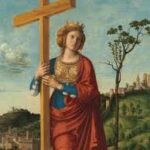
Much later, Emperor Heraclius won back from the Persian Emperor Khosrow II the True Cross that the latter had captured on the occasion of his conquest of Jerusalem in 614 AD. The Byzantine emperor elevated the said Cross at Hagia Sophia, Constantinople, and later brought it to Jerusalem in 629 AD.
Considering the central role of the Cross in the Christian faith, the Sign of the Cross has become a distinctive gesture of devotion. Christian households usually have a crucifix (a cross with the body of Christ on it) hanging on the wall. ‘Exaltação da Cruz’ (Exaltation of the Cross, in Portuguese) is even taken as a baptism name. All of which speaks of how the Cross is exalted above all other symbols in Christianity.
This year, the Feast of the Exaltation of the Cross falls on a Sunday. This happens on an average once in seven years. Hence, a new set of Readings on the 24th Sunday of Ordinary Time of this year.
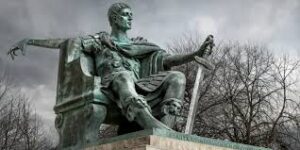
In the First Reading (Num 21: 4b-9) we see the punishment meted out to the Israelites who had rebelled against God instead of being grateful to Him for rescuing them from slavery in Egypt. They were bitten by fiery serpents, and perished. So, God instructed Moses to create a bronze serpent figurine and hoist it on a pole or staff; whoever looked upon the bronze serpent, survived.
In reality, the bronze serpent was the prefiguration of the Lord Himself, who would hang on the Cross for our sake centuries later. This is clear from Jesus’ words to Nicodemus in the Gospel text (Jn 3:13-17): ‘No one has gone up to heaven except the One who has come down from Heaven, the Son of Man. And just as Moses lifted up the serpent in the desert, so must the Son of Man be lifted up, so that everyone who believes in Him may have eternal life.’
The Ascension would not have happened without His Passion, Death, and Resurrection, all of which was an act of loving reparation for the sins of humankind: ‘For God so loved the world that He gave His only Son, so that everyone who believes in Him might not perish but might have eternal life.’
The Gospel text further states in no uncertain terms that ‘God did not send His Son into the world to condemn the world, but that the world might be saved through Him.’
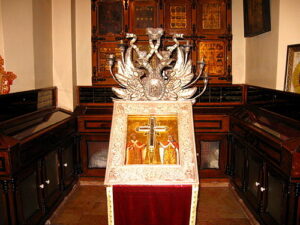
St Paul makes this clear in today’s Second Reading (Phil 2: 6-11) when he says that Christ ‘emptied Himself, taking the form of a slave, coming in human likeness; and found human in appearance, He humbled himself, becoming obedient to death, even death on a cross. Because of this, God greatly exalted him and bestowed on him the name that is above every name, that at the name of Jesus every knee should bend, of those in heaven and on earth and under the earth, and every tongue confess that Jesus Christ is Lord, to the glory of God the Father.’
Therefore, we must never feel embarrassed by the Cross. In fact, we must put it back where it belongs: in the Catholic educational institutions that have removed it in the name of ‘political correctness’ and in the clinics and hospitals that have replaced it with the Rod of Asclepius.[i] We must bring back the solid crucifix into our ultramodern churches that have fallen for minimalist crucifixes, or the Risen Christ with the cross in the background, or even just the Risen Christ – as though the Crucified Christ were something to be ashamed of.
Finally, today and always, we must make it a point to exalt the Cross in our homes and in society at large. In concrete terms, we must take up our cross and follow Him (cf. Mt 16: 24). The Cross is the ultimate example of love. We must make it a point to exalt the Cross in our hearts: it is our badge of honour.
[i] The Rod of Asclepius symbol is a medical symbol depicting a single snake coiled around a staff or rod, representing healing, medicine, and the Greek god of healing, Asclepius.
Jesus lambasts hypocrisy
The Bible is not a collection of feel-good stories that might give false hope and ultimately disappoint us. It is a collection of books that reveal God’s sincere and longstanding relationship with humankind. The Word became flesh in Jesus, who then refined the teachings of the Old Testament, making them comprehensible to modern man. For its part, the New Testament is a perfect guide for imperfect people like you and me, helping us to live rightly, as Jesus did.
Take the case of the Book of Sirach, from where the First Reading (3: 17-20, 28-29) is taken. Written circa 180 BC, it is the only book of wisdom literature whose author is known by name: Jesus Ben Sirach, a Hellenistic Jewish scribe. It is warmly recommended for its instruction and edification. Its rich, practical teachings are presented in a fatherly and persuasive manner.
Shining as it does by its supernatural motivation, its advice differs from, say, that of Bacon’s Essays, or Dale Carnegie’s How to Win Friends and Influence People. So, when Sirach tells you to ‘perform your tasks in meekness; then you will be loved…’, it’s not a manipulative strategy to find acceptance in the world. The words that follow ‘loved’ are important: ‘loved by those whom God accepts.’
In other words, the approach is other-worldly. God’s acceptance or ratification is what matters – an aspect so important to stress upon in an age when ‘anything goes.’ For example, if wanting to pass off as ‘broad-minded’ individuals, elders may fail to reprimand youngsters. Similarly, politicians of all hues bend over backwards to please (and in recent times, even Opposition members have shown much skill in backbends and forward bends). The bend is always on the side their bread is buttered...
As if that wasn’t bad enough, ‘men of God’ have followed suit. And what can be worse than the hypocrisy of the ‘men of God’? Some of them feed off the people’s adulation, while others curry favour with political animals… Just another move, and they’ll have crossed over to the other side and worship false gods. That’s precisely what happened in Goa yesterday (
If we’ve got any self-respect left, our archdiocese ought to feel distressed with the arrival of another edition of the ‘elephantine blunder’ of 2022 https://www.oscardenoronha.com/2022/09/13/elephantine-blunder/
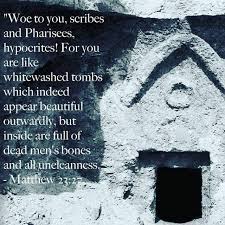
In concrete terms, how can a priest engage in idol worship, imagining it to be some kind of innocuous ‘outreach’? If they argue that ‘those who are well have no need of a physician, but those who are sick’ (Mt 9: 12), for goodness’ sake, where’s the medicine?... When Jesus was invited by shady characters – public sinners – He went, knowing full well that they didn’t have the right intentions. But then, He didn’t jump on the bandwagon; rather, confronting the majority, He announced the Good News straight on. That’s a medicine indeed; if we don’t give out our medicine, we could end up drinking their poison!
In today’s Gospel text (Lk 14: 1, 7-14), Jesus advises us to sit in the lowest place, so that when the host comes, he may say, ‘Friend, go up higher’. This may seem like a tactic to climb the ladder of success in this world, but it’s not! In fact, Jesus wants us to transpose the situation to Heaven. For in God’s eyes, ‘He who exalts himself will be humbled, and he who humbles himself will be exalted.’ This is a lesson in authentic, not false, humility.
Further on, Jesus exhorts us to love and care especially for the poor, the weak, and the voiceless. By advising the Pharisee to invite people such as these, and not the rich and famous alone, to his dinner or banquet, He teaches a lesson in selflessness and total trust in the eternal reward that awaits us in Heaven: ‘You will be repaid at the resurrection of the just.’
None of that is difficult for those who truly believe and trust in the Lord our God. That is also the message of the Second Reading (Heb 12: 18-19, 22-24), which juxtaposes the experience of the old and the new covenants. Whereas formerly God made covenants with His people in the midst of the great theophany of the Sinai (God’s visible manifestation to humankind there), in the latter days God made a covenant in the city of the living God. And where once there was fear, now there is love.
Where, then, is there place for hypocrisy in God's economy? None. In fact, Jesus reserves his harshest condemnation for religious hypocrites, such as the Pharisees. He decries their outward show of righteousness as a "whitewashed tomb" and warns that hypocrites will face severe punishment. Their place, then, could well be Hell.
Who will be saved?
Recently, when Israel began to pound Gaza, in a bid to forcefully occupy it, a quote from Zephaniah 2: 4 came up for discussion: ‘For Gaza shall be forsaken, and Ashkelon a desolation: they shall drive out Ashdod at the noon day, and Ekron shall be rooted up.’ Is the prophecy applicable to the present times?
Gaza is in Palestine; the remaining three cities, in Israel. Israel began its offensive against Gaza last Thursday. Yesterday, Yemen's Houthi forces targeted Ashkelon with drones and missiles. What will happen to Ashdod and Ekron (Tel Miqne), both in Israel? How it will all pan out is anybody’s guess.
Meanwhile, it is curious to note how modern Israel seems keen on rewinding Biblical history in its favour. The country is a far cry from the Biblical Israel. How, then, can they insist on the status quo ante? Canaan was for the Chosen People, an enviable position they lost as a result of disobeying God’s commands down the ages. We Christians, for our part, know that the erstwhile Chosen People’s problems are of their own making…
As the First Reading (Is 66: 18-21) states, the Jewish people had been expected to ‘gather all nations and tongues… that have not heard [God’s] fame or seen [His] glory’. They were enjoined to ‘declare my glory among the nations…’ and bring them ‘as an offering to the Lord, upon horses, and in chariots, and in litters, and upon mules, and upon dromedaries, to my holy mountain Jerusalem.’ How much of this did the Jewish people do to glorify the true God?
Whereas they failed to acknowledge that Jesus is the Son of God, and to go out to the whole world and proclaim the Good News, now they line up, like self-proclaimed heirs and beneficiaries who unashamedly gather after a person’s death, to claim the former land of Canaan as their inheritance. Their gods are Baal and Mammon; their instruments of worship, drones and missiles! That’s the measure of their iniquity.
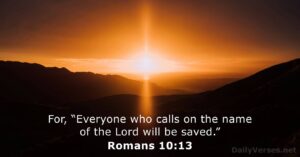
In the Gospel (Lk 13: 22-30), the Son of God, whom God the Father sent to earth as a final act of redemption, stated in no uncertain terms: ‘Many, I tell you, will seek to enter [the kingdom of God] and will not be able.’ This is a word of caution to all who go on with life as if the earth is their final destination: let them not be alarmed when the hour inexorably strikes! At that point, of what use will it be to say, ‘We ate and drank in your presence, and you taught in our streets.’ He will retort: ‘I tell you, I do not know where you come from; depart from Me, all you workers of iniquity!’
Alas, they will weep and gnash their teeth on seeing Abraham and Isaac and Jacob and all the prophets in the kingdom of God, and be thrust out. Even if pagan nations unite against Jerusalem, God will defeat them and use them for His glory. Thereafter they will share the former privileges of the Jew: ‘Men will come from east and west, and from north and south, and sit at table in the kingdom of God.’ The glorious task of evangelisation will be entrusted to them.
Is Israel, then, fated to perish? My interlocutor pointed out that the Lord says, ‘How can I give you up, Israel? How can I abandon you?... My heart will not let me do it. My love for you is too strong.’ (Hos 11: 8) For sure, we have a most faithful and loving God; He is just and full of mercy. The book’s narrative arc maintains that even if God’s people had deserted the Lord, in the end God’s constant love would prevail and win the nation back to Himself, restoring the relationship. This has been the message of prophets like Jeremiah and Ezekiel, too.
But can the Lord be put to the test? It is futile to think that God being so good will not condemn us definitely. After all, Hell is for the condemned. Why can’t Israel, too, learn a lesson or two from the centuries gone by? They – and we – would do well to take a leaf from the Second Reading (Heb 12: 5-7, 11-13): ‘Have you forgotten the exhortation which addresses you as my sons? … My son, do not regard lightly the discipline of the Lord… The Lord disciplines every son whom he receives… For the moment all discipline seems painful rather than pleasant; later it yields the peaceful fruit of righteousness to those who have been trained by it.’
The kingdom of God belongs to such as these who will let themselves be disciplined by the Lord our God. They will show love; they will be grateful; they will serve and be saved.
The Peace We Seek
A prophet finds no acceptance in his own home or country. It could be so for many reasons, one being that true prophets speak the full truth. They do so to guide, warn, or offer hope. But, as the saying goes, the truth hurts, and the prophets end up alienating people. And if they be rich and powerful people, prophets will soon be at the receiving end of all sorts of punishments. It has been so since times immemorial, and is true even in our world that swears by openness, transparency and democracy.
It is therefore not surprising that the prophet Jeremiah in the First Reading (Jer 38: 4-6, 8-10) suffered what he did at the hands of the powers-that-be. It was the year 588 BC, when the king of Babylon had besieged the holy city of Jerusalem. God’s spokesman, finding it suicidal to resist the enemy, advised the country to surrender. His message, however, was not music to the ears of the political leaders. They first tried to prevent him from being in touch with the people. Then, egged on by the puppet king Zedekiah, they condemned him to death. Zedekiah was fated to be the last king of Judah before its destruction by the Babylonian Empire.
Meanwhile, Ebedmelech the Ethiopian prevailed upon the king to reverse his decision. Accordingly, Jeremiah was lifted out of the miry cistern of Malchiah. Ebedmelech, whose name meant Servant of the King, was evidently a believer in Israel’s God. He was an honourable man, the likes of which are rare. Really, how many men of character like the African who saved Jeremiah can we find in our midst today?
Alas, crisis of character is the bane of our times. There is an undeniable decline in moral principles and ethical behaviour, and a visible erosion of trust in institutions and leaders. Those in power are expected to protect and save, but they turn into predators instead. Their egoism and greed has become the defining characteristic of our days. Was it because we have had it easy for too long that we have even forgotten God our Provider? As Michael Hopf, a US Marine veteran, puts it memorably in his book Those Who Remain: ‘Hard times create strong men. Strong men create good times. Good times create weak men. And, weak men create hard times.’
‘Strong men’ is obviously what Our Lord wants to make of us when in the Gospel text (Lk 12: 49-53) He declares: ‘I have come to cast fire upon the earth… Do you think that I have come to give peace on earth? No, I tell you, but rather division.’ This again is not good news to our generation that is so accustomed to sermons on forgiveness, love and peace alone, not war and retribution.
Could Our Lord ever be wrong? He spoke of ‘division’ in lieu of ‘peace’. Does that seem incompatible with Our Lord’s title of ‘Prince of Peace’? Fr Anton Huonder, Jesuit missiologist, ascetical writer, and renowned preacher of The Spiritual Exercises, states: ‘Certainly, the Saviour wanted to bring peace to men of goodwill, those who submit themselves to the yoke of His law; He wants to give them, not the peace that the world dreams of, but His peace, which the world cannot give.’ Hence, neither at home nor in society should we aim to please everybody, satisfy all tastes, wear a mask, make a pact with error and vice, harmonise irreconcilable dissonances. Instead, we must look for an authentic expression of peace, which is in keeping with God's law.
For that matter, in the world of politics, can we go by the promises of peace made by leaders, be it Trump or Putin, Netanyahu or Khamenei? Look at how ‘Pursuing Peace’ melted down in Alaska yesterday. The peace our statesmen present is not true peace; they neither know nor wish to know how to achieve it. It suits them to pose as ‘pacifists’ whereas all they ever want is personal glory and (maybe) monetary advantages for their country. The late Brazilian Catholic thinker Plínio Corrêa de Oliveira clinched it: ‘Peace [is] a cause much too beautiful, much too just and much too noble to be left in the hands of pacifists.’
To conclude, there is nothing else left for us to do but to ‘run with perseverance the race that is set before us, looking to Jesus the pioneer and perfecter of our faith, who for the joy that was set before Him, endured the Cross, despising the shame, and is seated at the right hand of the throne of God.’ That’s the message of the Second Reading (Heb 12: 1-4) today. And there is none else that we can trust but Him who gave Himself up for our salvation.
Jesuit Fr Douglas Rowe’s hymn puts it very heart-warmingly: ‘No one can give to me that peace which my Risen Lord, my Risen King can give’. Indeed, that’s the one and only peace we ought to seek.
Faith conquers all
It is sad how in the world today human reason or knowledge rather than faith in God is generally at the top of the order. Accordingly, people of faith are perceived as weak while those with worldly knowledge are celebrated. People with minds trusting in human agencies strut around as if they have seen it all, done it all. Thankfully, today’s Readings lend us a fresh perspective.
In the First Reading taken from the Book of Wisdom (18: 6-9), the writer refers to the fact that Abraham and his descendants were aware of the night when their people would be freed from slavery in Egypt. That night would mark the ‘deliverance of the righteous and the destruction of their enemies’. But then, did they acquire that knowledge on their own merits? No; it was revealed to them by God, because of their faith in Him.
In whatever we do, whether big or small, we must rely on divine providence; pray, and give thanks at all times. For their part, the Israelites offered sacrifices ‘in secret’, in the privacy of their homes. But that was not all. With one accord they agreed to abide by the divine law and were ready for ‘blessings and dangers’ alike. Life would be less stressful life if we too, as per the Ignatian formula, prayed as if everything depended on God and worked as if everything depended on us. ‘God knows best’ could well be our motto.
It is this type of faith that the Second Reading (Heb 11: 1-2, 8-19) defines as ‘the assurance of things hoped for, the conviction of things not seen.’ That is how our ancestors lived: always trusting in the Lord. That is how Abraham went out and lived in a foreign land, no questions asked; and Sarah, though sterile, received power to conceive. When a sense of adventure and openness is informed by a deep faith, God makes the seemingly impossible possible!
In fact, in chapter 11, the writer revisits the whole of salvation history from the faith perspective. He also introduces us to a number of individuals and events that bear out the power of faith. That is not to say that having faith frees us from trouble, sickness, criticism, attacks, danger, and the like. What it really does is strengthen us in the belief that, no matter what happens, we enjoy the benefit of God’s protection.
Similarly, all that we have prayed for or expected may not happen on earth. After all, we are exiles in this valley of tears. So, it is in Heaven, a ‘better country’, our final destination, that we shall receive our eternal reward. Heaven is the place God has prepared for us, just as He once prepared the Promised Land of Canaan for His Chosen People. Thus, setting our eyes on Heaven is not escapist but realistic; no wonder it ensures health of mind and body.
In that regard, the opening words of the Gospel text (Mt 12: 32-48) carry a hugely refreshing message to our world drowned in anxiety: ‘Fear not, little flock, for it is your Father’s good pleasure to give you the kingdom.’ So, let's not to rely on what the world has to offer; let's not to set our hearts on things that do not satisfy! Instead, ‘let your loins be girded and your lamps burning, for the Son of man is coming at an hour you do not expect.’
The said Gospel chapter has a series of parables on Our Lord’s exhortation to vigilance. We have to wait for the Second Coming, bide our time, and keep the faith. Such advice is ingrained in our religion. Therefore, however learned we may be, or no matter what we have achieved in life, there is nothing comparable to divine power and providence. As A. G. Sertillanges (1863-1948), the redoubtable French Dominican priest, philosopher, and apologist, puts it, ‘Reason ambitions only a world; faith gives it infinity.’ Indeed, faith conquers all.
Banner: https://shorturl.at/PIB5u
Between Jerusalem and Rome
The Readings of the Fourteenth Sunday of the Year especially grab our attention. In the First, we see Isaiah’s colourful imagery involving Jerusalem (Is 66: 10-14); in the Second, we have St Paul’s passionate testimony (Gal 6: 14-18) based on his life experience in the Roman Empire; and in the Third, Jesus exhorts His disciples to travel to the ends of the world (Lk 10: 1-12, 17-20).
With the goings-on in Israel, however, can we legitimately ‘rejoice with Jerusalem, and be glad for her, all you who love her’? Must we love her at all? Regardless of the present conflict in the region (pushed by the modern State of Israel, which is not the biblical Israel), we ought to love Jerusalem as the cradle of Christianity and the city where Our Lord lived, died, and rose. Therefore, the Church favours a two-nation solution to the Israel-Palestine imbroglio and an internationally guaranteed special status for Jerusalem, with access to the holy places guaranteed.
For his part, the Jewish Prophet Isaiah is an integral part of our Christian heritage. His colourful images come alive even for us who have long looked to Rome for spiritual inspiration. Rome is the centre of the Catholic Church, the seat of the Papacy, and the location of Vatican City, an independent city-state, albeit surrounded by the city of Rome. The Church prays for the conversion of Israel, specifically for the Jewish people to acknowledge Jesus Christ as the Messiah. All this makes the reference to Jerusalem all the more significant.
Of course, with Jesus, it became clear that salvation is not the preserve of the Jewish people. No doubt, it was first proclaimed to them. Jesus spoke first to the Twelve (see Lk 9), and then to the Seventy-two. Knowing that the Jewish officialdom would not take forward the divine mission, Jesus empowered His disciples to do so.[1] They went before Him to several places and ‘returned with joy’. And then, not only did Peter go to Rome and Paul journey through the Roman Empire, but Thomas came as far as India and died there.
A fragment of today’s Gospel text rings in the ear of every Christian: ‘The harvest is plentiful, but the labourers are few.’ He set them out ‘as lambs amid wolves’, anticipating trials and tribulations in a hostile world. Yet, He bid them to ‘carry no purse, no bag, no sandals, and to salute none along the way.’ They were not to waste time in elaborate greetings, so typical of Oriental cultures, but to focus on announcing the Good News without delay.
Furthermore, the disciples were to eat, drink, and accept accommodation as provided to them, ‘for the labourer deserves his wages’; but they were not to have great expectations or make demands. God would sustain them. They had to reach out to the sick physically and spiritually, giving them the hope of eternal salvation. Divine Master gave His disciples practical tips, management skills infused with psychological and spiritual principles! It is no wonder that Vatican diplomacy possesses unique strengths and commands respect.
St Paul, the Apostle to the Gentiles, who witnessed crises in the communities he tended and overcame them, concludes his Letter to the Galatians as follows: ‘I do not wish to take pride in anything except in the Cross of Christ Jesus our Lord.’ So, it is not circumcision or uncircumcision but the Cross of Christ that matters for our salvation. This is a big eye-opener. We ought not to sacrifice the truth of the Gospel to materialistic values and goals, something that even those in authority sometimes do. We must hold steadfast to the divine message.
So, whether in Jerusalem, in Rome, or at home, we must strive to be true disciples of Christ, the salt of the earth and light of the world.
[1] How many did Jesus commission? Some codices say 70, others 72; both figures are correct, as they represent the pagan communities (70 in the Hebrew text, 72 in the Greek) mentioned in Genesis 10. St Luke is the only Evangelist who mentions this number, suggesting that Jesus would not limit Himself to the twelve tribes of Israel (denoted by the Apostles) but would reach out to all communities and nations.
